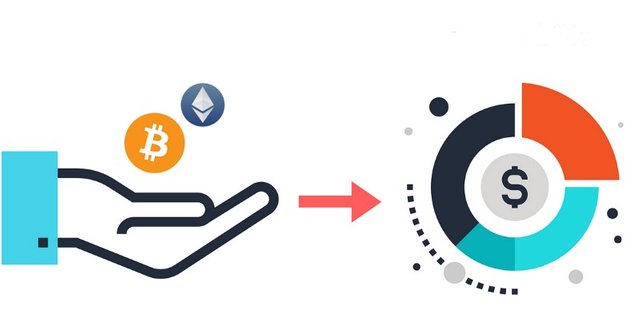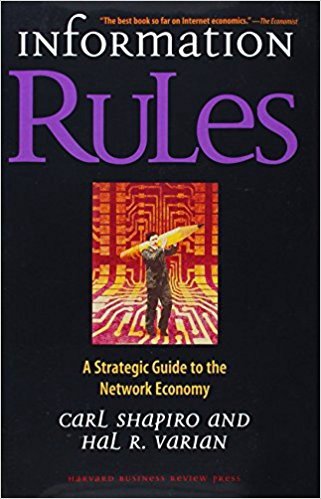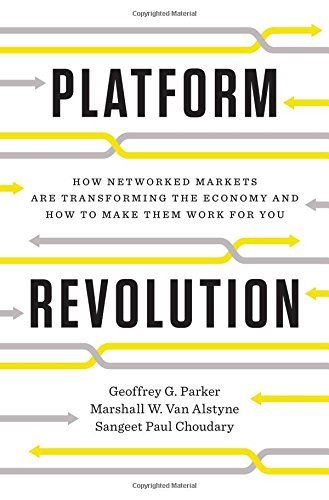
Disclaimer: My opinion is not legal advice. I am not a lawyer. This in no way should be considered legal advice, and my views do not represent the views of my employer, investors, or partners. Moreover, nothing written here should be construed as investment advice either, and with that out of the way…
Over the course of the last two weeks I have had over 10 companies directly contact me to help them launch an ICO. Typically I ask: when do you want to launch? The most ridiculous answer I’ve received was: “next week”. I’m a pretty patient person, especially with young entrepreneurs, so I demurred slightly, and asked what their technology is, and do they have a white paper? This is typically where the founder gets a little lost.
I never really anticipated the time where startups themselves, and not incumbents, would have to go through a “digital transformation”, as it was just a few years ago that a “tech” startup was good enough to be considered avant garde and pioneering. All of a sudden, everyone got crypto fever and learned about some of the unique properties of decentralized applications and blockchain technology, and it seems that everyone wants to do an ICO now.
I admit, 3 years ago I was that guy, pestering some of the many luminaries of the space in the same way. They were all very helpful, patient, and encouraging to me, so I feel it necessary to do the same to the founders, and enterprises that are presently coming to their blockchain awakening.
I’m going to outline below some of the things that you must consider when approaching what is commonly known as an ICO, and how you go about preparing yourself for long term viability with a project.
Here are some questions that you should be prepared to answer. I will not be able to help you answer them all here, but this post will give you the foundation for you to be able to assess your readiness to start the process properly.
This list is a small portion (about 5%.) of the questions that you will need to ask yourself, and it is by no means all of the things you will need to consider.
- Is your technology a platform, really?
- What will your platform add to the crypto/blockchain community that isn’t already being served by someone else?
- Does your technology need it’s own token?
- How will you offer your token? — voucher, direct token distribution, or convertible note?
- How will you issue and accept contributions: Bitcoin, Ethereum, or both
- How big is your network, is it dense and engaged, or sparse and quiet?
Stop calling it an ICO.
It’s like someone said: “hey it’s like an IPO, so let’s change the public part to coin, and we’re good. It’s a coin, not a security offering.
We should be in the clear now and we can straight

Wrong.
It’s like painting a sign on your forehead that says: hey, please investigate me SEC.
From a purely utilitarian perspective; what is supposed to power your application, is more like a token at Chuckee Cheese, chips at a casino, or a donation for access to a product/experience on kickstarter.
The more appropriate nomenclature for this emerging process can be better expressed as a “Token Generating Event”, or a “Token Donation”, as under certain jurisdictions, this is a specific and distinct definition, that aligned with the proper structure, provides clarity to the authorities on what exactly you are doing with your proposed endeavor.
Opportunity costs.
Everyone looks at the massive opportunity with ICOs, and one rarely looks at the downside risks involved for doing one well, but sloppy at the same time. It’s only been a year since the last hiccup in the blockchain/crypto world, and we seem to have forgotten what actual risks are involved with this type of technology, and emerging form of social trust.
On one side, founders have the ability to side step, or at least include under different circumstances, the insufferable nature of kingmaker “kiss the ring type” VCs, and focus directly on the sweet spot of their value; their team, technology, and community. In many respects this is an even greater responsibility than that you owe to your shareholders, as now a team has to account to an entire stakeholder system; the token holders and early supporters.
This common endeavor, that may or may not have a future value, and is dependent on a third party, can be construed as an “investment scheme” under certain jurisdictions, and warrants a lot of respect and legal consideration. It’s not just three of four guys that you are beholden to, contractually — It’s an entire community of potentially thousands of people mired in legal ambiguity, and very real default laws.
Yeah, and who are these people anyway?
KYC and AML for pseudonymous tokens.
We in the crypto-space are very attentive to privacy, in fact it’s primarily what spawned the technology, however as the technology goes “mainstream” it runs into real world laws. Dual integration of the crypto world to real world jurisdictions, and the laws that govern each franchise are becoming a reality, which should be embraced by all, as the benefits far outweigh the downsides. Bear in mind, that In almost every legal jurisdiction, no matter what legal definition is placed on cryptocurrency, you will almost always be required to follow best practices in KYC and AML laws.
Who is this person, where are they from, what is their nationality, where do they reside, and over a certain transaction level: where did this money come from?
I’m confident to say that I don’t think people want to be making it easy for terrorists to launder their money, so it would be wise to find out about the guidelines in your country/jurisdiction to find our what the process is, and I stress process, as you might think you are doing enough, but the way your KYC and AML process is done makes a difference when it comes down to defending yourself or your company.
What is the law in your jurisdiction?
The 9 most terrifying words in the English language are: I’m from the government and I’m here to help — Ronald Reagan
If you’re lucky enough to live in a country where the regulatory body has set out guidelines or has created a “Sandbox” make them aware of what you are trying to do, they are there to guide/monitor you in/through the regulatory process. It might not be fun, but it will most certainly keep you out of jail.
For those who do not have an active and engaged regulatory body that has set out guidelines, there are references and and resources that are constantly updated that will provide you with the basic level of where your country or jurisdiction is at with their view and definition of cryptocurrencies. The US Library of Congress keeps a record of Digital Currency Regulation, and it is frequently updated, as well, Wikipedia does a good job of keeping their page on the legality of bitcoin by country and territory updated as well.
Stepping out into the unknown is what this industry is all about and everyone is still learning. Take it as an opportunity to be a leader in your region by advocating for reform and or regulatory innovation, step up, and be inclusive by recognizing the authority of the regulator by pulling them, and others into the process. This is new for them as well too. What I believe you will find is that if you approach people, whether they are lawyers, accountants, technologist, or regulators, many are willing to embrace vanguard projects, more than most would think, because just as we’re all competing for the future, so are they.
Get a lawyer
First, you don’t need a “blockchain lawyer” or a virtual currency expert. Simply because you will be hard pressed to find one, they are few and far between — and even if you do, they will be back logged for a year because of their growing ICO pipeline.
What you need is a logical, rational, and curious lawyer who understands:
- Corporate formation
- KYC , AML, and Compliance
- Crowdfunding
- Securities law
- Data privacy
- Tax law
As Peter Thiel says: “competition is for losers”
so try to find YOUR lawyer.
Preferably a small team from an intimate, but international firm, as the larger firms tend to be just branded legal mills that are supported by huge multinationals that need to churn out wrote legal widgets to satisfy massive regulatory demands.
As long as she is curious, and thorough, many of these types of lawyers will get excited about working in an emerging area of the law, and will see this as a challenge where they can distinguish themselves and their firm.
Take the time to review this well thought out document by Coinbase A Securities Law Framework for Blockchain Tokens, in fact, once you have identified some potential counsel, bring this along with you to your selected lawyer, so you can ground them in a probably unknown subject like cryptocurrencies and the thinking that is going on in the space. This will provide you with a context and a general blueprint for your discussion and you can fill them in with some of the other happening in the industry.
What jurisdiction, and why you should have a global perspective.
Token Events are coming in all shapes and sizes these days, many of them are actually complex in their structuring for necessary reason. The choice of your jurisdiction will dictate who you are directly regulated by, the structure of your offering, as well as who you can and cannot offer your tokens to, or what the encumbrances are if you decide to reach a global market.
Ethereum has set the trend for companies setting up Foundations in Switzerland, which is a Civil law jurisdiction with a variety of different types of vehicles depending on the needs and the function of your team and technology.
Some other jurisdictions worth looking into are Liechtenstein and Mauritius, but bear in mind, the political/regulatory stability, as well as the prestige of the jurisdiction is something that you should consider when choosing the proper domicile for your formation.
However, organizations are not limited to the formation or jurisdictions above. Singapore has provided some guidance on virtual currencies, which is good, as it provides a basic framework for lawyers to work from. In addition to this, the MAS sandbox is available to startups and could prove to be a useful domicile for companies that would want to leverage the nation’s strong government, rule of law, and competitive spirit.
For US companies, this is a process cannot be understated. Just because your company is listed offshore does not mean you are immune to the long reach of the SEC. In fact, the SEC has rolled a few regulatory bodies and they have no problem with extraterritorial adjudication to get what they need to get you and your company. To be contrarian to the common sentiment of the crypto-world, it is probably best that you make them your partner by complying with US regulation as a means of upping your quality and game in the eyes of your supporters and token holders.
It is trust that emerges ultimately as the ‘coin of the realm’ not only in the money bazaar — Edwina Thompson
In the crypto world, the most valuable “coin” as the quote mentions, is trust. Once you have lawyered up and your concept is tight, there are a few things that you must get in order to make a strong proposal to your community.
Capability Trust
Your Founder’s images and bios should be online, transparent and available to review. This includes your advisors. Supporters should be able to see who you are, what your background is, and be able to understand how your background and capabilities lend to the type of technology you are developing. There are a lot of scams and people running off with tokens without delivering the product. People want to know what you have done in the past and what you are capable of doing now in this emerging space. This should be reinforced by the activities below.
Technical and Business Trust
Do you have a thoughtful proposition of your technology that is in the form of a Position paper? A Position paper is not your “deck” in black and white A3 paper. It is a clear 2–3 page argument that you are trying to make that is supported by your technology proposal.
Once you have had your position paper out for a while, hopefully you have posted it on your website, or showed it to people privately. Your nascent community will be able to make comments, and suggestions that you can develop the Position paper into a White paper.
A Whitepaper details specifically how you propose your technology will actually work. These documents typically have very detailed architectures, unique scripts, user flows, a go to market strategy, a value proposition, and more detail about your growing team and advisors. Many have token distribution terms, and a usage of funds description that will tell supporters how you propose to go about your endeavor. It’s not so much a prospectus in the traditional sense, but it acts very much like one. Most of the sophisticated crypto supporters will not even consider you if you do not have this in place, and properly structured. Technologists and developers will not take you seriously if you are not proposing something that warrants a token or the underlying technology is fluff, so take your time in presenting your best ideas and your process in your whitepaper.
The more sophisticated crypto/blockchain companies will offer a Yellow paper, or a second “technical” white paper, that will take much of the first two papers and actually present in scientific detail the technology and the innovations that they have created, or propose to create. In many cases the technology is tested and/or peer reviewed. I believe that the near future of token offerings will require this level of detail.
A great example of this approach is Dr. Gavin Wood of Parity. His whitepaper on Polkadot is a great example of someone who takes his work, the community that supports him, and his company’s reputation very seriously.
Social Trust and Network Effects
If you haven’t already read the following books, I highly suggest you purchase, read and re-read these two books, as it will be the basic foundation for how you should think of blockchain networks, your technology, and the metrics that drive your community.


Once you have a basic understanding of platforms and network effects, and keeping in line with the transparency and competence of your team. The following social media platforms are integral to building credibility, trust, and your network
Reddit and Bitcointalk
Don’t be afraid, jump in. There can be some ruthless trolls in these network, but without it, you and your technology are essentially non-existent. The great thing about these forums, is that it allows you to highlight your unique differences to the community, as well as for the community to get to know you and your vision for your technology. Most of the vetting and due diligence for projects will be done here.
Remember, just because someone doesn’t like what you offer, doesn’t mean it’s not good. Find the people that love what you do and try your best to be responsive and deliver undeniable value to your emerging supporters and potential user base.
Slack and Telegram
Having a long term approach, by putting yourself out there and staying engaged with your community cannot be stressed enough. Slack and Telegram have become the default way for organizations in the crypto/blockchain space to stay relevant and connect to their supporters, users, and developers. People have to feel like they know who you are, and you are accessible to them. The most successful token offerings, and platforms all have a maniacal focus on their communities, and realize that the value of their network is an intrinsic element of their sustainability.
Legal and Token Trust
Another emerging framework for people to get their projects off the ground was proposed a while back by Jack Du Rose of Colony with his Safe Agreement for Future Tokens. It is a take on the Ycombinator SAFE agreement, and it is another basic primer that you can provide your lawyer with to structure a “pre-sale” for your token so you can ramp up to your token sale. The proposal does require some modifications based on what i expressed earlier, but it is a simple and elegant tool that could provide an attractive offer to early stage investors who see the crypto/blockchain disruption happening in the traditional investment industry.
Token mechanisms and models
If you have decided to move forward with your project, and as I said earlier in this piece that there are many parts to doing a token offering that go beyond the scope of this paper, you will need to know what is the actual mechanism or model that you will use to raise the funding that you need for your project.
Vitalik Buterin has written a great article: Analyzing Token Sale Models that will allow you to understand some of the ways that organizations are experimenting with offerings at the moment. It also outlines the inspiration for developing best practices in the space. As a companion piece to Vitalik’s article, I encourage you to read Vlad Zamfir’s A Safe Token Sale Mechanism.
Hopefully this basic introduction to how to do an ICO will send you off in the right directions. As I mentioned, I keep a pretty open door policy to anyone who wants to learn more, just hit me on Twitter, directly with your questions, and I will try to respond, but answers are not guaranteed.
Hi! I am a robot. I just upvoted you! I found similar content that readers might be interested in:
https://medium.com/the-intrepid-review/how-to-do-an-ico-d02c54a990c2
Downvoting a post can decrease pending rewards and make it less visible. Common reasons:
Submit
Congratulations @collinthompson! You have completed some achievement on Steemit and have been rewarded with new badge(s) :
Click on any badge to view your own Board of Honor on SteemitBoard.
For more information about SteemitBoard, click here
If you no longer want to receive notifications, reply to this comment with the word
STOPDownvoting a post can decrease pending rewards and make it less visible. Common reasons:
Submit
Congratulations @collinthompson! You have completed some achievement on Steemit and have been rewarded with new badge(s) :
Click on any badge to view your own Board of Honor on SteemitBoard.
For more information about SteemitBoard, click here
If you no longer want to receive notifications, reply to this comment with the word
STOPDownvoting a post can decrease pending rewards and make it less visible. Common reasons:
Submit
Congratulations @collinthompson! You have received a personal award!
Click on the badge to view your own Board of Honor on SteemitBoard.
For more information about this award, click here
Downvoting a post can decrease pending rewards and make it less visible. Common reasons:
Submit